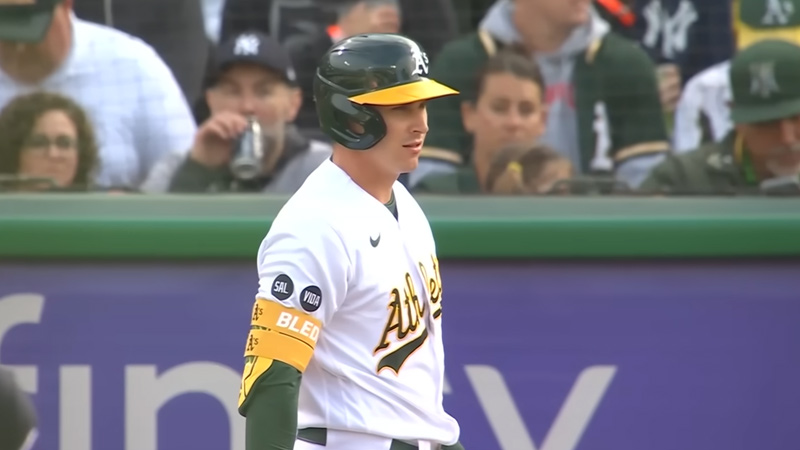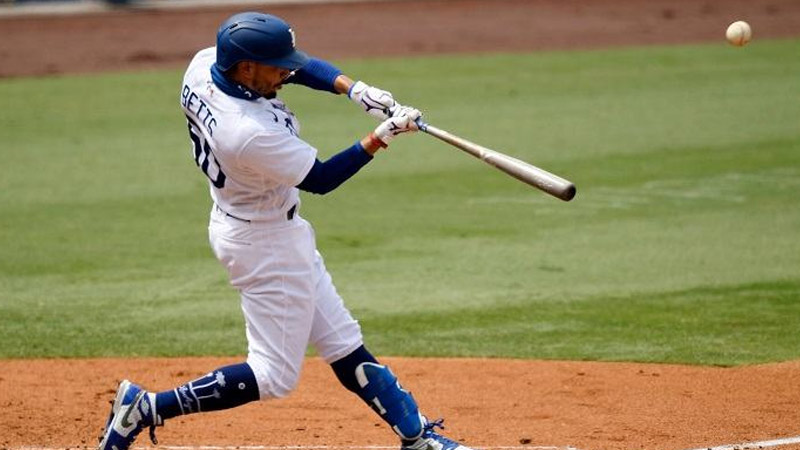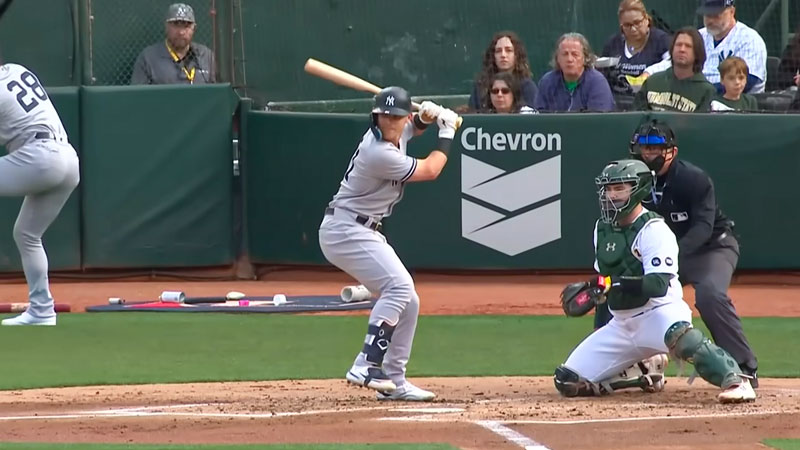Baseball, America’s beloved pastime, captivates fans with its rich history, strategic gameplay, and electrifying moments. Amidst the cheers and anticipation, one question lingers in the minds of many: How long is a baseball game?
In this blog post, we will delve into the factors that influence the duration of a baseball game, uncover the average length, and explore intriguing aspects related to game time.
From the intense pitchers’ duels to the thrill of extra innings, we will unravel the intricacies that shape the length of this timeless sport. So, join us as we unravel the mysteries of how long a baseball game truly lasts.
How Long is a Baseball Game?
The length of a baseball game can vary depending on several factors, including the level of play (professional, college, or youth), the teams involved, the game situation, and even external factors like weather conditions.
In professional Major League Baseball (MLB) games, the average length in recent years has been around 3 hours. However, it’s important to note that individual games can be shorter or longer than this average.
Some games may be completed in under 3 hours, while others can extend beyond 3 hours due to factors like extra innings or delays caused by weather, injuries, or other circumstances.
Several factors contribute to the duration of a baseball game, such as the number of pitches, scoring plays, pitching changes, managerial decisions, and the pace of play.
Additionally, television broadcasts may include commercial breaks, which can further lengthen the overall time of the game.
It’s also worth mentioning that other levels of baseball, such as college or youth games, typically have shorter game durations compared to professional games. These games often have different rules and regulations that affect their length.
Ultimately, while the average length of a baseball game is around 3 hours, the actual duration can vary depending on multiple factors and circumstances.
Essential Facts Regarding the Length of a Baseball Game?

Here are some important facts about the length of a baseball game:
Determining Factors
The length of a baseball game is influenced by factors such as runs scored, managerial decisions, gameplay considerations, and external circumstances. Unlike many sports, baseball does not have a game clock, and a game typically consists of nine innings.
Average Duration
Prior to 2023, the average length of a Major League Baseball (MLB) game was around 3 hours. However, the introduction of a pitch clock in 2023 significantly reduced the average game length by approximately 30 minutes, bringing it down to about 2 hours and 40 minutes.
Speeding Up the Game
In recent years, MLB has implemented various measures to expedite gameplay and increase offensive production. These include the introduction of a pitch clock, banning the defensive shift, enlarging bases, adopting the designated hitter in the National League, and making the runner-on-second rule in extra innings permanent.
Factors Affecting Duration
Several factors can contribute to longer game times, including offensive production, pitching changes, replay reviews, slow pitchers and batters, pick-off moves, batter timeouts, arguments and fights, player and umpire injuries, weather delays, and extra innings.
Longest Games
The longest professional baseball game in history was a minor league game between the Pawtucket Red Sox and the Rochester Red Wings in 1981, lasting 33 innings over 8 hours and 25 minutes.
The longest MLB game in terms of time was a 25-inning contest between the Chicago White Sox and the Milwaukee Brewers in 1984, lasting 8 hours and 6 minutes.
Objective and Inning Duration
The objective of a baseball game is for a team to score more runs than the opposing team. A game typically consists of nine innings, or eight and a half if the home team is ahead after the top of the ninth. If the game is tied after nine innings, it continues into extra innings until a team leads at the end of an inning.
Recent Trends
As of 2023, an average inning in MLB lasts about 16 to 18 minutes. Despite efforts to speed up the game, MLB games have generally increased in length over time. The implementation of the pitch clock has been a significant factor in reducing game duration.
These facts highlight the factors that contribute to the length of a baseball game and the various measures implemented to manage and optimize gameplay duration.
When Does A Baseball Game Time Extended?

Source: scottfujita.com
A baseball game’s time can be extended in several situations:
Extra Innings
If a game is tied after the completion of the standard nine innings, it goes into extra innings. Each extra inning provides an opportunity for both teams to score runs and break the tie. The game continues until one team leads at the end of an inning.
Tied Game
In rare instances, a game may be called due to weather, curfew, or other circumstances while the score is tied. In such cases, the game is usually resumed from the point of suspension at a later date.
Delays
Various types of delays, such as rain delays, equipment malfunctions, or medical emergencies, can occur during a baseball game. These interruptions can extend the overall duration of the game.
Replay Reviews
In certain situations, a manager or umpire can request a replay review to determine the accuracy of a particular play. The review process involves examining video footage to make a ruling. This can result in additional time being added to the game.
Lengthy Innings
Occasionally, an inning can become particularly lengthy due to factors such as multiple pitching changes, numerous runs being scored, or extended at-bats. Such innings can extend the game’s duration beyond the average.
Managerial Decisions
Managers may make strategic decisions, such as intentionally walking batters, making pitching changes, or employing defensive shifts, which can influence the game’s pace and potentially extend its length.
It’s important to note that the length of a baseball game is not predetermined and can vary depending on the factors mentioned above. While efforts have been made to manage and reduce game duration, certain circumstances and gameplay situations can extend the length of a game.
What are the Facts that Determine the Length of an MLB Baseball Match
Several factors can determine the length of a Major League Baseball (MLB) game. Here are the key facts that can influence the duration of an MLB baseball match:
Pitching Performances
The performance of starting pitchers and relief pitchers can impact the length of a game. If pitchers are consistently throwing strikes and efficiently retiring batters, the game can progress more quickly. Conversely, if pitchers struggle with control, throw a high number of pitches, or allow many hits or walks, the game can be prolonged.
Offensive Production
The number of runs scored by both teams can affect the length of a game. A high-scoring game typically involves more plate appearances, pitching changes, and time spent on the basepaths, which can extend the duration. Conversely, a low-scoring game with fewer offensive opportunities can result in a shorter game.
Managerial Decisions
The decisions made by managers during a game can influence its length. For example, a manager may choose to make pitching changes, substitute players, or implement strategic plays such as hit-and-run or sacrifice bunts. These managerial decisions often involve interruptions and can contribute to the overall time of the game.
Pace of Play
The pace at which batters and pitchers operate can impact the duration of a game. Quick pitchers and batters who step into the batter’s box promptly can help maintain a faster pace.
Conversely, if pitchers take longer between pitches or batters frequently step out of the box, the game’s pace can slow down.
Inning Length
The duration of each inning can vary based on factors such as the number of runs scored, pitching changes, defensive plays, and the speed at which the game is being played.
Longer innings with multiple pitching changes, runs scored, or extended at-bats can contribute to a lengthier game.
External Factors
Various external factors can affect the game length, including replay reviews, weather delays, injuries to players or umpires, disputes or arguments among players or managers, and other unexpected interruptions.
Extra Innings
If a game extends beyond the standard nine innings due to a tie score, additional innings are played until a team leads at the end of an inning. The length of extra innings can vary, and if the game goes into multiple extra innings, it can significantly lengthen the overall duration.
What Are the New Rules That Speed Up the Game?
There are some new rule changes that have been implemented in recent years to help speed up the game:
Pitch Clock
In some leagues, including Major League Baseball (MLB), a pitch clock has been introduced to limit the amount of time pitchers and batters can take between pitches.
Limited mound visits
MLB implemented a rule limiting the number of mound visits per game to help reduce time delays.
Commercial break time
Efforts have been made to shorten commercial breaks between innings to keep the game moving.
Instant Replay
The introduction of instant replay allows umpires to review certain calls, reducing the need for arguments and delays on the field.
Reduced time for video reviews
Leagues have implemented rules to expedite the video review process, setting time limits for reviews to prevent unnecessary delays.
The Longest Game Ever in Baseball History: At A Glance
Here’s a table listing some of the longest games in baseball history, including both Major League Baseball (MLB) and minor league games:
| Date | Teams | Innings | Duration | League/Level |
| May 1, 1920 | Brooklyn Robins vs. Boston Braves | 26 | 3 hours, 50 minutes | MLB |
| May 8, 1984 | Chicago White Sox vs. Milwaukee Brewers | 25 | 8 hours, 6 minutes | MLB |
| April 18, 1981 | Pawtucket Red Sox vs. Rochester Red Wings | 33 | 8 hours, 25 minutes (over two days) | Minor League AAA |
| May 1, 1962 | Chicago White Sox vs. Detroit Tigers | 22 | 7 hours, 22 minutes (over two days) | MLB |
| August 31, 2014 | Rochester Red Wings vs. Pawtucket Red Sox | 33 | 8 hours, 7 minutes (over two days) | Minor League AAA |
| July 4, 1985 | Chicago White Sox vs. Milwaukee Brewers | 17 | 8 hours, 6 minutes | MLB |
| May 2, 2018 | Rochester Red Wings vs. Lehigh Valley IronPigs | 33 | 3 hours, 19 minutes (in 1 game) | Minor League AAA |
| September 11, 1946 | Brooklyn Dodgers vs. Boston Braves | 26 | 3 hours, 50 minutes (tied 1-1) | MLB |
| July 26, 2018 | Clearwater Threshers vs. Daytona Tortugas | 21 | 6 hours, 24 minutes (over two days) | Minor League A+ |
| May 31, 2001 | Pawtucket Red Sox vs. Richmond Braves | 33 | 4 hours, 59 minutes (over two days) | Minor League AAA |
FAQs
What factors contribute to the length of a baseball game?
The duration of a baseball game is influenced by various factors such as offensive production, pitching performances, managerial decisions, the pace of play, replay reviews, external delays, and the occurrence of extra innings. These elements collectively impact the overall length of the game.
Has there been any effort to reduce the length of baseball games?
Yes, Major League Baseball (MLB) has implemented several measures to speed up the pace of play and shorten the game duration. These include introducing a pitch clock, banning the defensive shift, enlarging bases, adopting the designated hitter in the National League, and making the runner-on-second rule in extra innings permanent.
What is the average length of a baseball game?
As of recent years, the average length of a professional MLB game has been around 3 hours. However, the introduction of the pitch clock in 2023 has significantly reduced the average game length by approximately 30 minutes, bringing it down to about 2 hours and 40 minutes.
Can a baseball game go into extra innings?
Yes, if a game is tied after the completion of the standard nine innings, it proceeds into extra innings. Each extra inning offers an opportunity for both teams to break the tie and continue playing until one team leads at the end of an inning.
Are there any notable instances of exceptionally long baseball games?
Indeed, baseball has witnessed some extraordinary marathons. The longest professional baseball game in history was a minor league game between the Pawtucket Red Sox and the Rochester Red Wings, lasting 33 innings over 8 hours and 25 minutes.
The longest-ever MLB game in terms of time was a 25-inning contest between the Chicago White Sox and the Milwaukee Brewers in 1984, lasting 8 hours and 6 minutes.
End Call
The length of a baseball game can vary based on numerous factors, including offensive production, pitching performances, managerial decisions, and unforeseen circumstances.
While the average duration of a professional baseball game is approximately 3 hours, recent rule changes, such as the introduction of the pitch clock, have aimed to reduce game length.
However, the timeless charm of America’s pastime lies in its ability to captivate fans, regardless of the time it takes to complete a game. So, grab your popcorn, settle into your seat, and enjoy the beauty of baseball, regardless of how long it may last.







